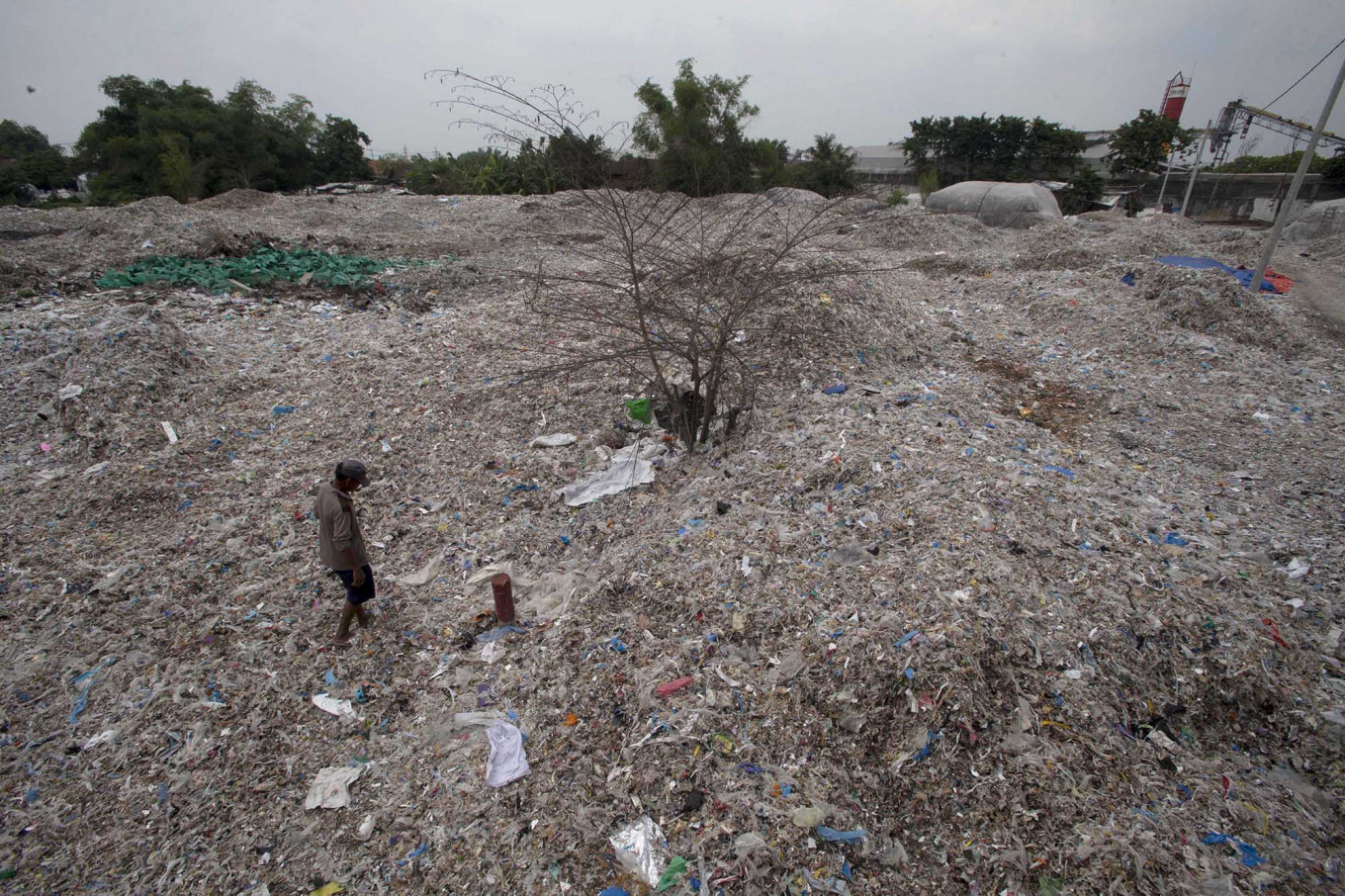Popular Reads
Top Results
Can't find what you're looking for?
View all search resultsPopular Reads
Top Results
Can't find what you're looking for?
View all search resultsIndonesian NGO welcomes UN policy to control waste exports
The amendment requires waste exporters to obtain the consent of receiving countries before shipping contaminated, mixed, or unrecyclable plastic waste.
Change text size
Gift Premium Articles
to Anyone
T
he Indonesian Zero Waste alliance appreciated the United Nation’s move to control waste exports from predominantly developed nations to developing countries across the world, following China’s decision to massively cut waste imports last year.
On Friday, 187 countries including Indonesia agreed to the amendment to the Basel Convention, which is a treaty controlling the movement of hazardous waste from one country to another.
The amendment requires waste exporters to obtain the consent of receiving countries before shipping contaminated, mixed, or unrecyclable plastic waste. It therefore allows developing countries to stop unwanted plastic waste from entering their territories.
In its statement, the alliance explained that developing countries particularly in Southeast Asia had received a huge influx of contaminated and mixed plastic waste after China banned imports of most plastic waste.
A Greenpeace report, furthermore, shows that waste imports to Indonesia soared from 10,000 tons per month in late 2017 to 35,000 tons per month in late 2018. Among the top plastic waste exporters to the country are the United Kingdom, Germany, Australia and the United States.
Yuyun Ismawati, co-founder of Bali Fokus or Nexus 3 Foundation, which is a member of the Zero Waste Alliance, said the amendment could be a game changer and force every country to set a higher standard of responsible plastic waste management. “Toxic plastics disposed by rich communities in other countries will no longer become the burden of poor communities,” she said.
The majority of countries in the world expressed their support for the proposal to amend the Basel Convention, and over 1 million people globally signed two public petitions from Avaaz and SumOfUs.
However, there were a few vocal parties who opposed the idea, including the United States as the largest exporter of plastic waste in the world. (evi)











